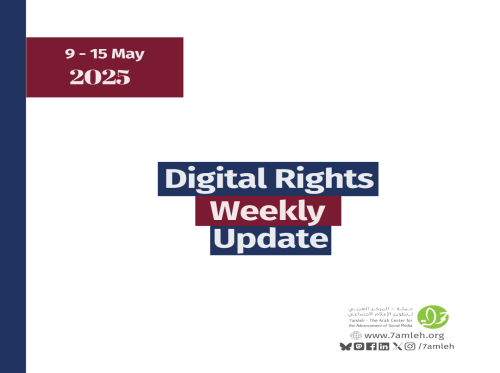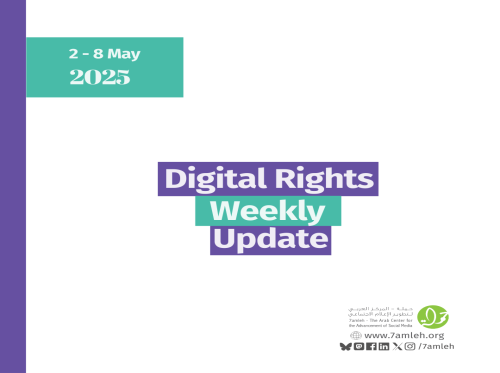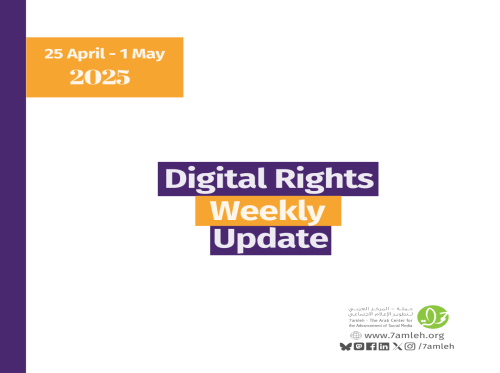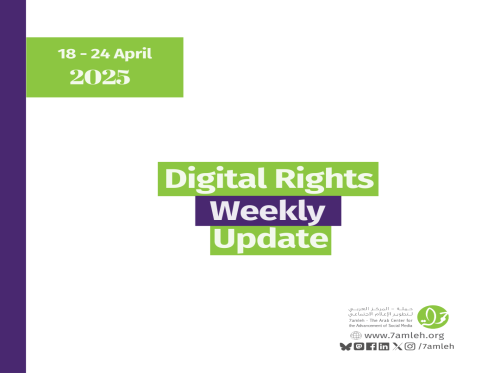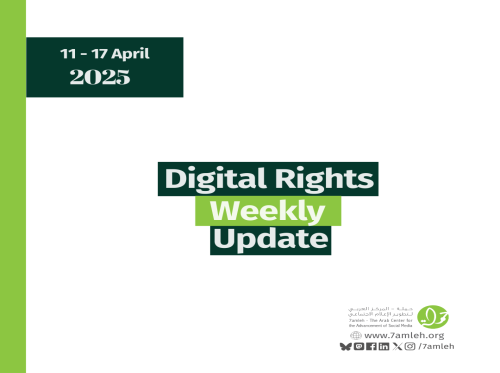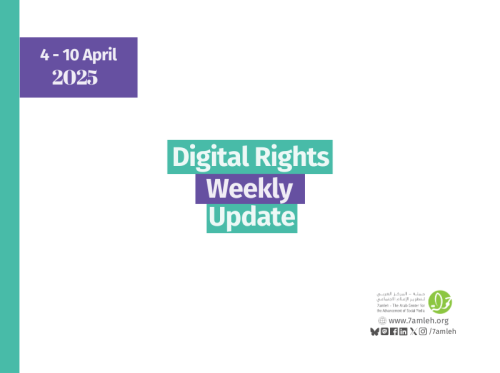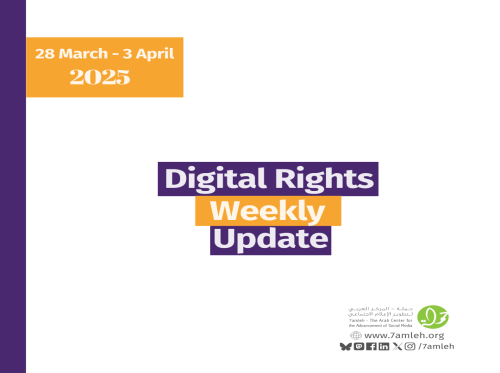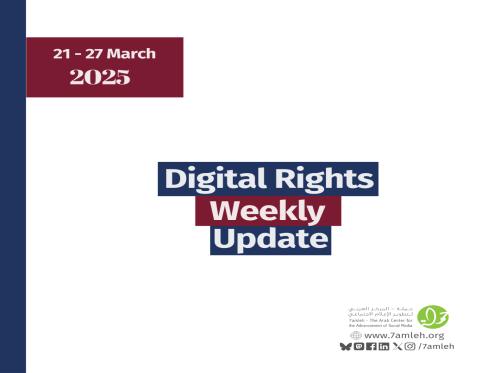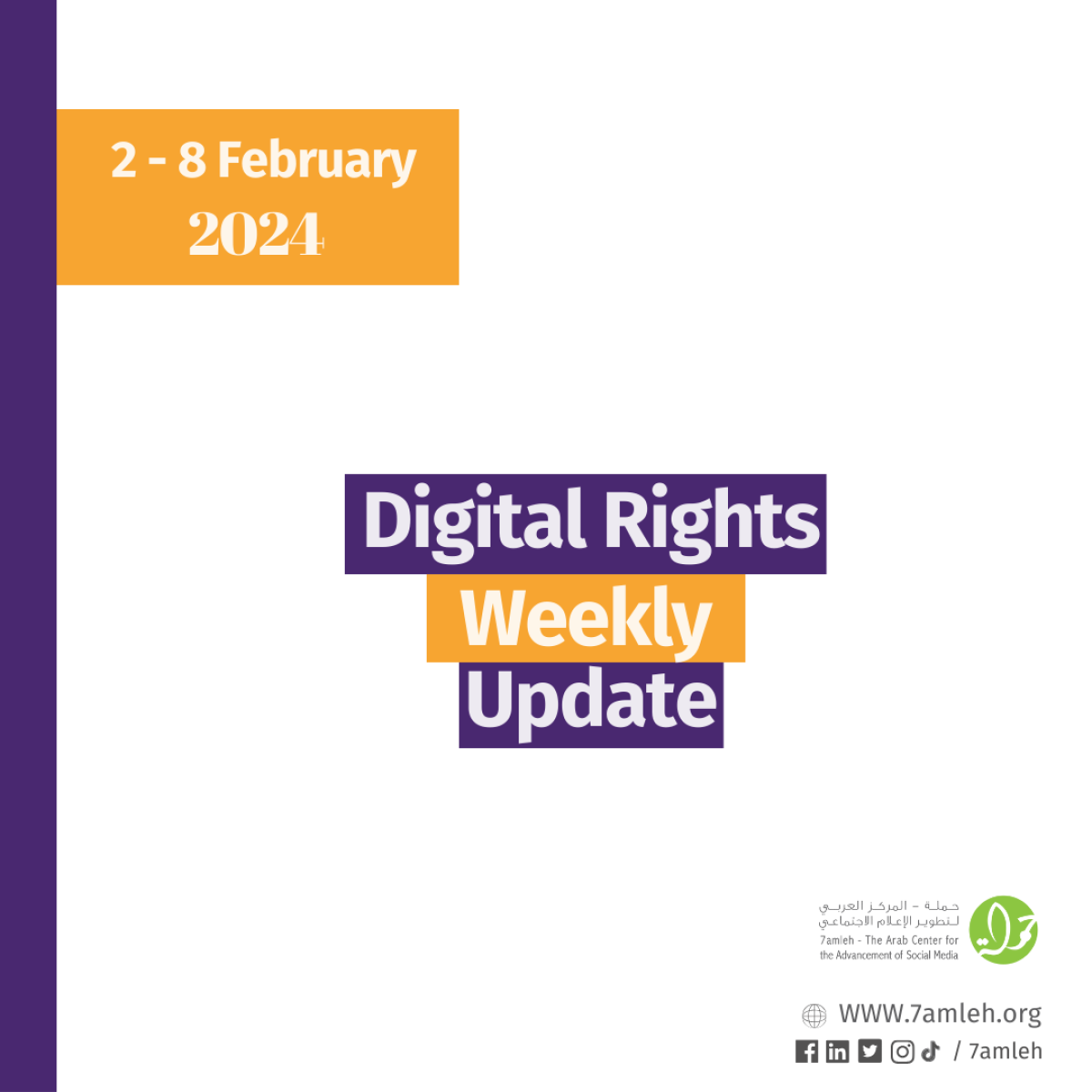
1.
7amleh
Today, February 7th 2024, The Palestinian Digital Rights Coalition sent letters to Meta, X, Telegram, and TikTok regarding the proliferation of hate speech, dehumanization, and incitement to violence and genocide against the Palestinian people on their platforms. On 26 January 2024, the International Court of Justice (ICJ) ordered provisional measures in the case of South Africa v. Israel, determining the plausibility that Israel is carrying out genocide against the Palestinian people in Gaza. The Palestinian coalition noted documented use of online platforms to incite genocide against Palestinians in Gaza, including by the highest levels of the Israeli leadership. The ICJ order presents a necessity to address the urgent need for online platforms to fulfill their legal and moral responsibility in upholding human rights and preventing the dissemination of harmful content, including incitement to commit genocide, within their domains.
2.
US social media giants accused of bias over Israel's war on Gaza (English)
Anadolu agency
Major social media platforms, most of them headquartered in the US, are said to restrict access to information in the Israeli war on Gaza, enforcing pro-Israeli censorship. In an interview, Serkan Bayrakci, a professor at the Faculty of Communication of the Istanbul-based Marmara University, evaluated the stance of some US-based social media platforms on Israel's war on the Gaza Strip. Bayrakci noted that the personal opinions of those who are managing social media platforms may influence the company policies. "We can effectively see the personal views of Meta's owner Mark Zuckerberg and those who advertise to the company in the policies they implemented. We know that immediately after Oct. 7, Facebook formed a team and removed nearly 800,000 pieces of content within a week.” Although there is no explicit statement by the CEO of X, Elon Musk's visit to Israel indicates that the Israeli lobby is somehow influential on social media platforms, Bayrakci added. Most of the major social media platforms are US-based and embroiled in censorship debates, Bayrakci noted, stressing the increasing need for having social media platforms based in different regions.
3.
Facebook at 20: From virtual community to censorship of reality (English)
Aljazeera
I have spent half of my life on a platform that today is actively censoring perspectives I care about and encroaching on privacy. It is time to quit.When I joined Facebook in 2007, three years after the platform launched, I used it solely as a means of staying in touch with friends I had acquired while hitchhiking through Lebanon in the aftermath of the summer 2006 Israeli assault, which had destroyed much of the country but not its famed hospitality. Old acquaintances from middle school and high school were gradually added to my Facebook friends list, including my seventh-grade boyfriend and a few Zionists who were purged once I mastered the “unfriend” function. Then came writers, academics, and activists of compatible political persuasions. This, for a while, seemed to endow Facebook with the potential to serve as an inspirational forum and genuine virtual community.
4.
Meta denies Shaun King opportunity to appeal his Instagram ban (English)
TRT
The decision against King has become a matter of concern to all online pro-Palestinian activists or, more generally, anyone on Meta platforms (Facebook, Instagram, WhatsApp and others) trying to raise awareness as to the atrocities Israel is committing against Palestinians. For the lack of transparency it showed King, in neither providing him substantive reasons for abolishing his account nor a fair chance to appeal the abrupt (and draconian) decision, means at any time such persons — however principled — could likewise be shut down.
Related Articles
Subscribe to Our Email Alerts
And stay updated with our latest activities, news, and publications!

